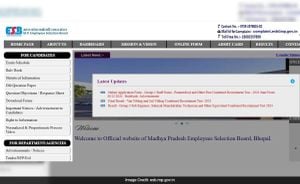The oral health of athletes with intellectual disabilities has gained increased attention, especially within the framework of initiatives like the Special Olympics. A recent longitudinal study evaluated the oral conditions of 114 athletes participating in at least two editions of the Italian Special Olympics over a span of five to ten years. The study is significant as it sheds light on dental hygiene practices and overall oral health among individuals who face unique challenges.
Conducted over 13 editions of the Italian Special Olympics from 2002 to 2023, the research found noteworthy trends. The aim was to assess changes over time for these athletes, who often encounter barriers to accessing preventative dental care. The findings revealed substantial stability and even improvements concerning oral and dental health status.
At the starting point, or t0, of the study, the athletes reported tooth brushing once or more per day at 83.3%, which showed a remarkable increase to 95.6% by the second time point (t1). The researchers noted, "The findings of the present study suggest substantial stability or improvement concerning some indicators of general, oral, and dental health," offering hope for health initiatives targeting this population.
Despite the increase in tooth brushing frequency, the presence of gingival disease also saw a rise from 47.5% to 52.5% between the two time points. The study documented worsening conditions for other dental metrics too, with reports indicating the percentage of athletes with decayed, missing, filled, and sealed teeth increased over the assessment period.
The analysis allowed for comparisons at various stages, highlighting the overall dental health trends experienced by the athletes, which differ markedly from general findings. For many individuals with intellectual disabilities, maintaining good oral care habits can be challenging due to factors such as impaired motor skills, limited access to care, and difficulties with communication.
The study involved partnerships among various institutions, which included dental professionals and students working collectively to provide the teeth cleaning and screening process. Entry to the Special Smiles program volume of activities included oral hygiene instructions and completely non-invasive procedures, ensuring comfort and compliance from the athletes participating.
While improvement is noted, certain metrics such as missing teeth raised concern. The increase of missing teeth from t0 to t1 was pointed out as significant, lending weight to the premise of enhanced awareness yet remaining under considerable risk of dental issues. "...the observed increase of subjects with missing teeth between t0 and t1 seems to corroborate the hypothesis..." highlights the need for more sustained intervention.
This research stresses the importance of continued oral health promotion within the Special Olympics framework itself, advocating for routine dental screenings and individualized hygiene plans for athletes. With barriers still evident for individuals with intellectual disabilities, targeted health initiatives will play key roles moving forward.
Significantly, the study served not only to report dental statistics but to engage health care providers and the community, ensuring athletes received the encouragement and teaching needed to maintain their dental care routine. Through initiatives like these—with the synergistic effort of dentists and dental researchers—the health systems can be reinforced, promoting enhancements for physical fitness and overall well-being.
Conclusively, the findings point to positive steps made for dental hygiene among athletes with intellectual disabilities over the past decade. The study reinforces the message about the power of sports inclusion and community initiatives focused on health, driving home the potential for improved quality of life and the far-reaching impact on communities and families involved.



